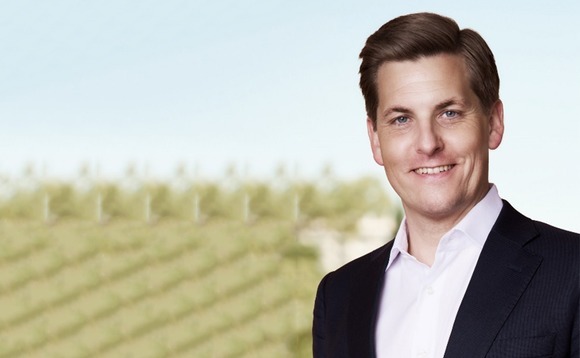
Levine Leichtman Capital inches closer to first German deal

Levine Leichtman Capital Partners is to seal its first German deal in the upcoming 12 months as it looks to cement its place in the DACH market, the GP’s new European head, Josh Kaufman, said.
Plans by the US-based small-midcap sponsor, which is in advance negotiations with some potential targets, come as LLCP appointed managing director Matthias Tabbert to launch the firm's Frankfurt office in January. Further boosting its commitment to the region, LLCP will be making a new hire in the country to support Tabbert's origination and investment efforts in DACH, said Kaufman.
"The DACH markets are very exciting for us," said Kaufman. "We opened the Frankfurt office as it is a very big and attractive market for private equity within Europe, and we want to put resource behind that in order to grow."
Despite Germany being the fourth largest economy in the world, private equity penetration remains far below the UK and France, offering numerous opportunities for newcomers, said Tabbert.
LLCP is targeting European businesses generating EUR 4m-EUR 10m EBITDA via its Levine Leichtman Capital Partners Europe II, which raised EUR 463m in 2020. Larger European businesses with EUR 10m-EUR 15m EBITDA and upwards can be invested through the Levine Leichtman Capital Partners VI, which raised USD 2.5bn in 2019 with a mandate to invest both in the US and Europe.
"To truly grow in Europe [including Germany], you need to put troops on the ground," said Tabbert, noting many of its US peers have been unsuccessful on the continent by adopting a fly-in-fly-out model based out of London, he said.
The Frankfurt office will be an addition to the sponsor's physical presence in Europe since its London office opening in 2011. This has since been followed by offices in the Hague covering Benelux, followed by Stockholm covering the Nordics market.
High margin deals
According to Tabbert, LLCP differentiates itself from its peers by being "extremely focused and disciplined for high quality assets". The sponsor typically looks for businesses generating at least 20% EBITDA margin or more. Businesses also have to have at least 80% cash conversation, he said.
"This means that around 90-95% of the dealflow I look at is killed upfront despite the very high quality dealflow we have seen in DACH since we first arrived," said Tabbert. "We rejected most of them either because they didn't meet our margins criteria, or they have a high customer concentration or other factors."
Although sector-agnostic, LLCP has a penchant for tech-enabled service businesses such as education and healthcare, as well as highly regulated industries such as aerospace.
Globally, around 50-60% of our portfolio is in tech-enabled services, which includes testing and inspection, enterprise software, information services and data, 30% in education, and the remaining 10-20% in healthcare, noted Kaufman.
For companies which pass through its vetting regime and interested in taking on LLCP's investments, the fund can pitch its ability to help them expand across Europe and the US thanks to its operations on both sides of the Atlantic, Tabbert said.
LLCP hopes its flexibility and low leverage used in structuring deals will prove to be attractive to German entrepreneurs who are known for their risk adversity, Tabbert said. The low leverage gives LLCP more flexibility as the global economy deals with the rising interest rates environment and even the potential for a recession, noted Kaufman.
A typical deal could, for example, take on debt from its equity fund at one turn internal leverage, which would keep external leverage very low at around 3x-3.5x EBITDA, Tabbert said. LLCP is also generally well positioned across a company's debt and equity structure, reducing the risk of creditor takeovers, he said.
"Under our structure, management can become fully focused on growth and not covenant discussions with banks because they are overleveraged," Tabbert said.
Cautiously deploying
LLCP is currently "cautious" over future investments in light of the looming global recession fears, but the fund will continue to invest selectively, said Kaufman.
"The sectors we invest in are very uncorrelated and resilient sectors, and we see good growth across those sectors," he stressed.
One area where the sponsor is increasingly focused on is the "very tight" labour market and high inflation, with salaries needing to keep pace with higher living costs, he said.
On deal activity, pitch activity across the M&A market is continuing, with many businesses currently in their early stages and being prepped for post-summer launch, he said.
"We still feel like there will be good volume, but it won't be like the peak levels that we saw in 2021," he said.
Where subtle changes are being felt now in the market are on the buyside, with fewer bidders willing to play aggressively in bidding processes, he said. But this has not necessarily affected valuations, he added.
"For good businesses that are uncorrelated and resilient and folks feel confident that that will perform, valuations are holding up because there's lots of private equity money and private credit funds that needs to be invested and deployed," he said.
Latest News
Stonehage Fleming raises USD 130m for largest fund to date, eyes 2024 programme
Sponsor acquired the public software group in July 2017 via the same-year vintage Partners Group Global Value 2017
Stonehage Fleming raises USD 130m for largest fund to date, eyes 2024 programme
Czech Republic-headquartered family office is targeting DACH and CEE region deals
Stonehage Fleming raises USD 130m for largest fund to date, eyes 2024 programme
Ex-Rocket Internet leader Bettina Curtze joins Swiss VC firm as partner and CFO
Stonehage Fleming raises USD 130m for largest fund to date, eyes 2024 programme
Estonia-registered VC could bolster LP base with fresh capital from funds-of-funds or pension funds








